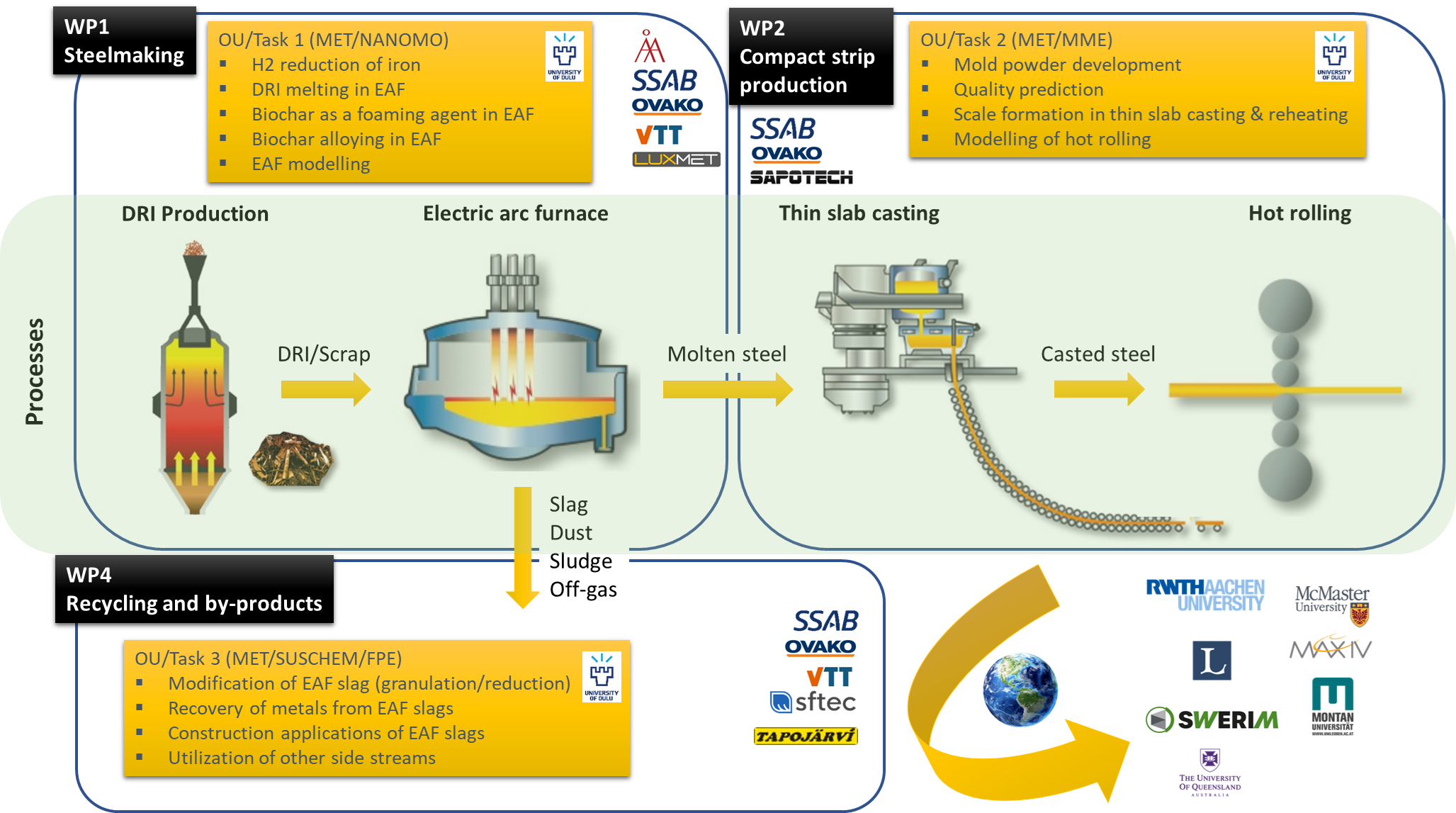Towards Fossil-free Steel 2
FFS2
Project information
Project duration
-
Funded by
Business Finland
Funding amount
1 760 000 EUR
Project coordinator
Macon Oy
Unit and faculty
Contact information
Contact person
Researchers
Project description
To tackle the climate change, decreasing the carbon footprint of steel industry is essential. For this Finnish steel industry has decided to adopt concept of fossil-free steelmaking. Transition to fossil-free steelmaking enables very significant mitigation of CO2 emissions. Fossil-free steelmaking has not been realized in industrial scale anywhere in the world. Its importance on achieving the CO2 emission mitigation goals on national and EU level is unquestionably very high. Furthermore, the customers of steel industry are becoming more and more aware and demanding for the climate-friendliness of the steel products. The transition to fossil-free steelmaking requires close long-term collaboration between steel industry, other relevant industries and research organizations along with public investments.
FFS2 project continues the work FFS project initiated regarding the academic research supporting the transition to fossil-free steelmaking in Finland. Within last two years, important steps were taken on many important topics, including H2-DRI production, slag foaming in EAF, scale formation, EAF slag characterization and utilization and hot rolling, with promising and even excellent results at the University of Oulu. A solid foundation was laid for continuing the studies for gaining deeper understanding on the phenomena and mechanisms on vital future processes in FFS2.
At the same time, many other very important topics were not included in the FFS project. While going deeper in important topics, new research openings are introduced in the FFS2 project as well, including melting behaviour of H2-DRI, biocarbon alloying in EAF, continuous thin slab casting and modification of EAF slag. FFS2 expands the scope and studies the future steelmaking process chain wider.
In FFS2, all activities have been divided under a work package structure which is common for the whole consortium. There are four work packages:
1) WP1 – Steelmaking
2) WP2 – Compact strip production
3) WP3 – Green energy
4) WP4 – Recycling and by-products
OU’s research topics are presented in Figure 1.

Figure 1. University of Oulu's research topics in FFS2 project.